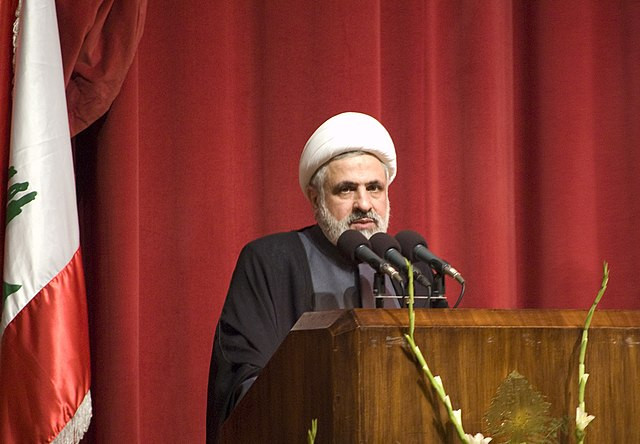Lebanon's Hezbollah militant group has appointed cleric Naim Kassem as its new leader following the death of its long-time chief, Hassan Nasrallah. The announcement came after Nasrallah was killed in an Israeli airstrike in southern Beirut last month, a significant blow to Hezbollah's leadership structure. Kassem, 71, who had served as Nasrallah's deputy for over three decades, is now tasked with leading the Iran-backed organization during one of its most turbulent periods.
In a statement released on Tuesday, Hezbollah's decision-making Shura Council confirmed Kassem's appointment as the group's new secretary-general. The organization vowed to continue Nasrallah's policies, asserting that its goal to achieve "victory" remained unchanged. Kassem, a founding member of Hezbollah, has long been a key figure within the group and frequently represented the organization in public, particularly after Nasrallah went into hiding following the 2006 war with Israel.
Kassem's rise to leadership was widely expected following Nasrallah's death. Despite initial speculation that Hashem Safieddine, a senior Hezbollah official with close ties to Iran, would take over, Safieddine was also killed in a subsequent Israeli airstrike. Safieddine's death, along with that of several other senior Hezbollah officials, has left the group in a vulnerable position, with many of its top commanders eliminated.
In his first official speech since taking over, Kassem pledged that Hezbollah's military capabilities remained strong and warned Israel of further attacks. "No one knows the consequences of igniting the war in Lebanon, regionally and even internationally," Kassem said, speaking from Hezbollah's political headquarters in Beirut. The cleric emphasized that Hezbollah would continue its support for Hamas, which has been involved in a prolonged conflict with Israel since October 2023.
Kassem's background provides insight into his deep roots within Lebanon's Shiite political and militant landscape. Born in 1953 in Kfar Fila, southern Lebanon, he initially studied chemistry and worked as a teacher before shifting towards religious and political activism. He joined the Amal Movement, which represented Lebanon's Shiite population during the country's civil war, before helping to establish Hezbollah in 1982 following Israel's invasion of Lebanon.
Kassem's tenure as Nasrallah's deputy began in 1991, and he quickly became a prominent figure within the group, known for his clerical authority and public speaking skills. However, many analysts believe that while Kassem is a capable leader, he lacks Nasrallah's fiery oratory, which had helped Hezbollah galvanize its support base over the years.
The leadership transition occurs at a critical time for Hezbollah, as the group finds itself embroiled in renewed hostilities with Israel. Following Hamas' surprise attack on Israel in October 2023, Hezbollah opened a second front against Israeli military positions along the Lebanese border. Since then, the group has launched rocket and missile attacks into northern Israel, while Israeli forces have carried out retaliatory strikes on Hezbollah positions in southern Lebanon. The conflict has displaced over a million people in Lebanon, with extensive damage reported in Hezbollah strongholds.
In addition to the ongoing conflict, Hezbollah faces internal challenges, including a deadly attack in mid-September when thousands of communication devices used by its members exploded simultaneously. The incident, which killed 39 people and injured nearly 3,000, was widely attributed to Israel and highlighted the increasing vulnerabilities within Hezbollah's operations.
Kassem's ascension to power marks a significant moment in Hezbollah's history, as the group navigates a volatile landscape both within Lebanon and across the region. The militant group's ties to Iran, particularly through figures like Safieddine, have long shaped its strategy and ambitions. Safieddine, who was married to the daughter of Iranian General Qassem Soleimani, had played a key role in strengthening Hezbollah's relations with Tehran before his death.
As Hezbollah's new leader, Kassem inherits a complex legacy shaped by Nasrallah's long tenure. While he faces immense pressure from both external and internal forces, Kassem's leadership is expected to maintain continuity within the group's militant and political operations. According to Lebanese analyst Qassim Qassir, Kassem's appointment demonstrates that Hezbollah is still capable of running its own affairs despite recent losses.
"Hezbollah is not scared regarding the developments," Qassir said, pointing to the group's ability to quickly reorganize itself following the deaths of its top officials.






